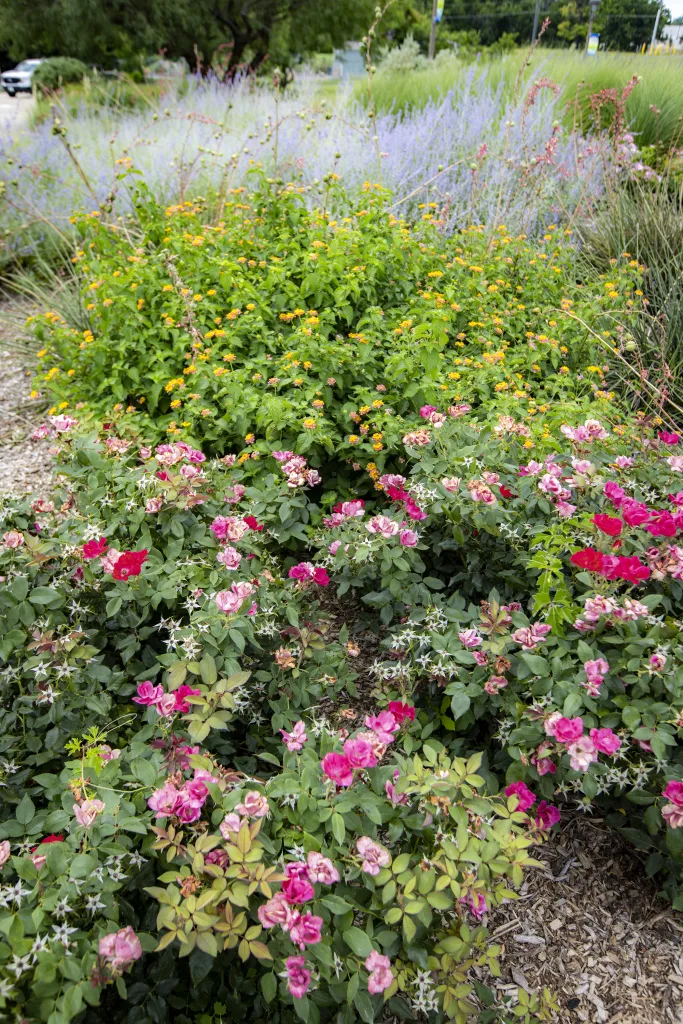
As the days grow longer, residents shift their attention toward their lawns and landscapes. The first signs of spring- budding trees, warmer weather, and wildflowers signal the time to refresh outdoor spaces. As you dust off gardening tools and prepare for a season of growth, the Upper Trinity Regional Water District encourages residents to Give a Drip by watering no more than two days a week and not between 10 AM and 6 PM.
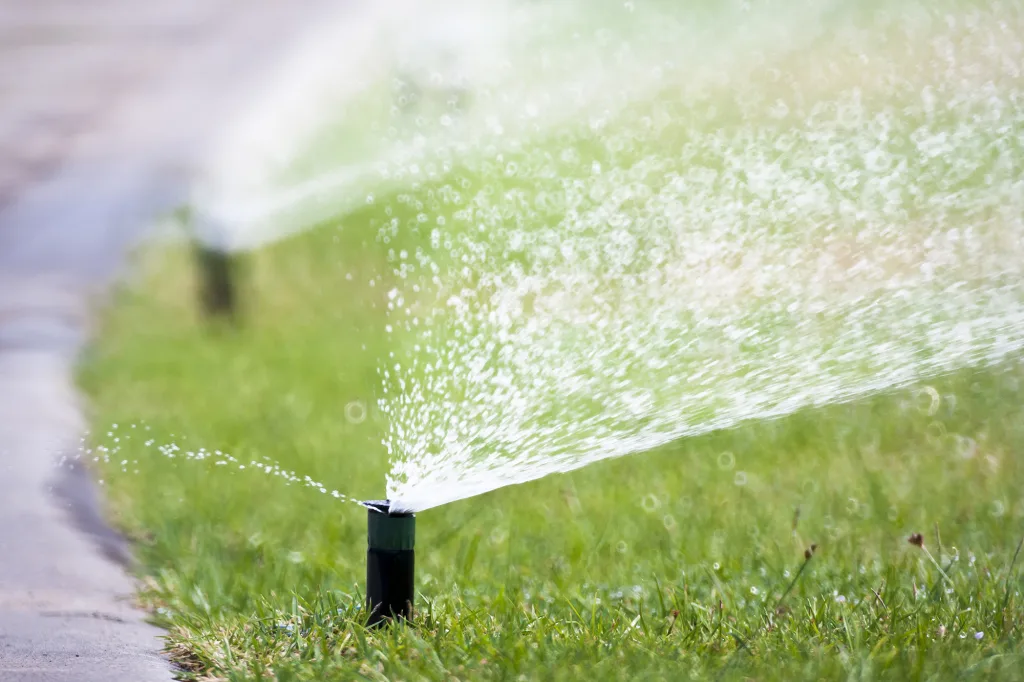
Pledge to Water Less
Growth and development and frequent drought conditions have increased the amount of water people use for their yards. High outdoor water usage strains available water in our reservoirs, North Texas’ main source of drinking water, and treatment/pumping equipment that delivers drinking water to your tap. Last year, Upper Trinity implemented a mandatory two-day-per-week outdoor watering schedule for residents to reduce water usage and protect lake levels and water treatment equipment.
Upper Trinity encourages residents to ‘Give a Drip’ by pledging to water less frequently this spring and summer. To take the pledge, visit WaterLessYall.com and complete the pledge form. Qualified residents will be entered into monthly drawings for a free irrigation repair kit (valued at $30). In October, three grand prize winners will be randomly selected to receive one of two smart irrigation controllers or a free professional landscape consultation and a $500 gift card to Rooted In, a nursery and garden center in Pilot Point. WaterLessYall.com also offers landscape classes, weekly watering tips, and hands-on information about reducing outdoor watering. “It’s our job to make sure every time you turn on your tap, water comes out,” said Larry Patterson, Upper Trinity’s executive director. “The steady growth in North Texas and our hotter, drier summers make it important for everyone to only use the water our yards actually need.”

More than half the water used in North Texas during the summer is for outdoor watering, which amounts to billions of gallons applied to yards annually. Fortunately, it doesn’t take as much water for your yard to thrive as you might think. Grass and native plants are Texas tough. In fact, if watered efficiently, plants thrive with less frequent watering. Upper Trinity also recommends discontinuing outdoor irrigation during the winter.
Plants watered twice a week or less develop deeper and healthier root systems. This results in better overall plant health, which increases plant resilience during extreme temperatures (hot or cold). Frequent watering can weaken a plant by encouraging shallow root growth, making it harder to survive heat.
Cycle and Soak for a Healthier Lawn
When watering your lawns and landscapes, make it count by watering the right way. Practice the “cycle and soak” method to help water go deeper into the roots: Water a short cycle of 5-6 minutes in each zone (for spray heads) and repeat in an hour. Two or three cycles is all that is typically needed. Residents can still water plants and flower/garden beds by hand more frequently when needed.
Go Native
Incorporating Texas native and drought-tolerant plants in your landscape saves water. These plants thrive in local growing conditions, often requiring less water than exotic or water-demanding species. Adopting a two-day-per-week watering regimen complements the needs of native and drought-tolerant plants, allowing them to flourish without excessive irrigation. You can find a native plants list on the Native Plant Society of Texas website at NPSOT.org. Texas SmartScape (TXSmartscape.com) and the Denton County Master Gardeners (dcmga.com) also provide water-efficient landscape designs residents can use.
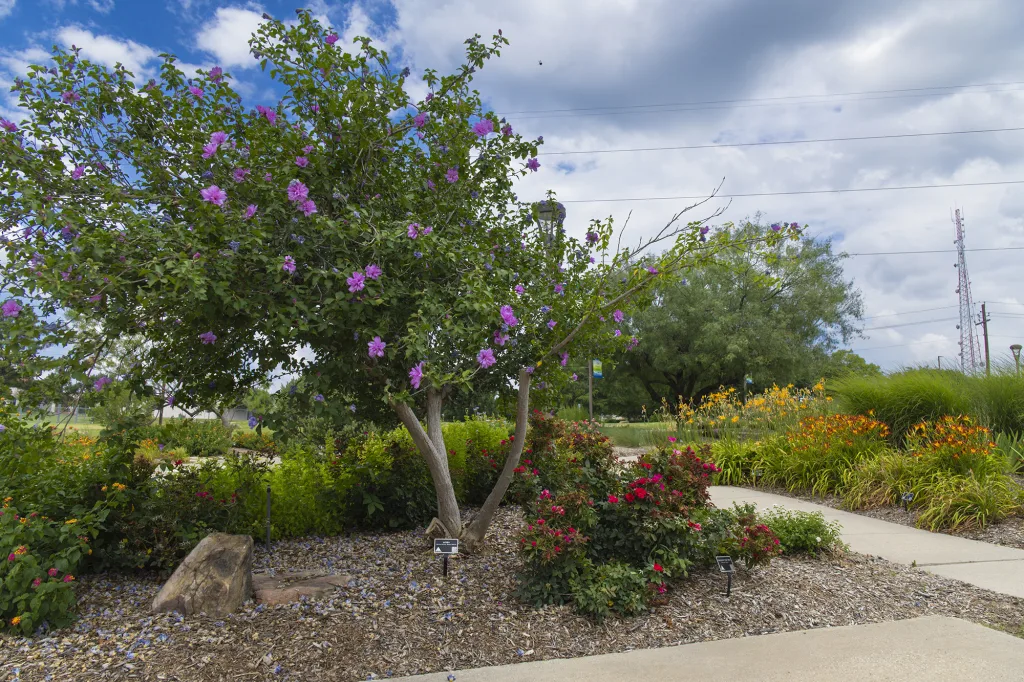
You might say, “My homeowner’s association won’t allow me to plant that!” While state law restricts HOAs from preventing you from planting natives in your yard, they can require you to maintain a similar “look and feel” of other landscapes in your area. It is best to work with your HOA to see if there are any requirements and to submit a landscape design for approval before starting any work. In this case, permission is better than forgiveness!
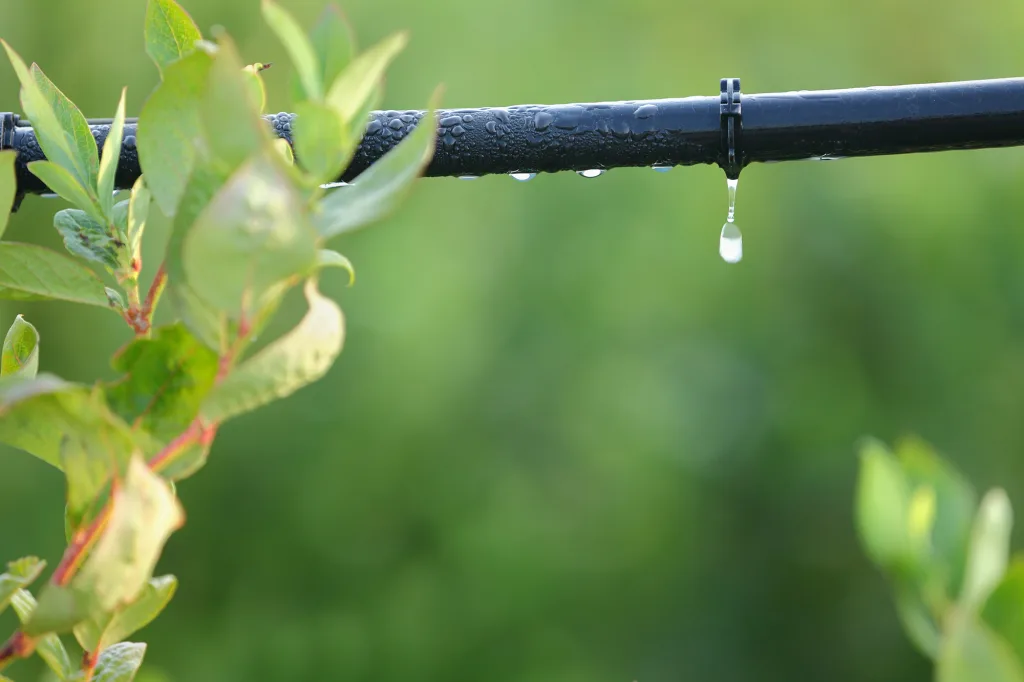
Don’t Be a Drip — Irrigate Efficiently
The type and condition of your sprinkler system play a major role in how much water your landscape absorbs. It’s important to check sprinkler heads each spring to ensure they are in good working condition. Irrigation evaluations are performed by a licensed irrigator who can provide expert advice on proper watering schedules and recommend needed repairs or adjustments to deliver water more effectively. Schedule your free irrigation evaluation with Upper Trinity’s Irrigation Specialist by visiting utrwd.com.
Water can be distributed more evenly by upgrading your irrigation system to multi-stream heads instead of traditional fixed-spray nozzles. The rotational movement delivers water at a slower rate, which reduces evaporation, resulting in less misting and runoff and giving the soil more time to absorb it. Drip irrigation systems or soaker hoses are ideal for flower beds, younger trees, and foundation watering.
Smart controllers do the thinking for you by automatically operating your irrigation system and adjusting it based on weather and the time of year. The watering schedule changes to align with actual site conditions. You can sign up for weekly emails from Texas A&M AgriLife’s WaterMyYard program (WaterMyYard.org) to take the guesswork out of knowing when and how long to water. When rain is forecasted, it’s best to shut off sprinklers.
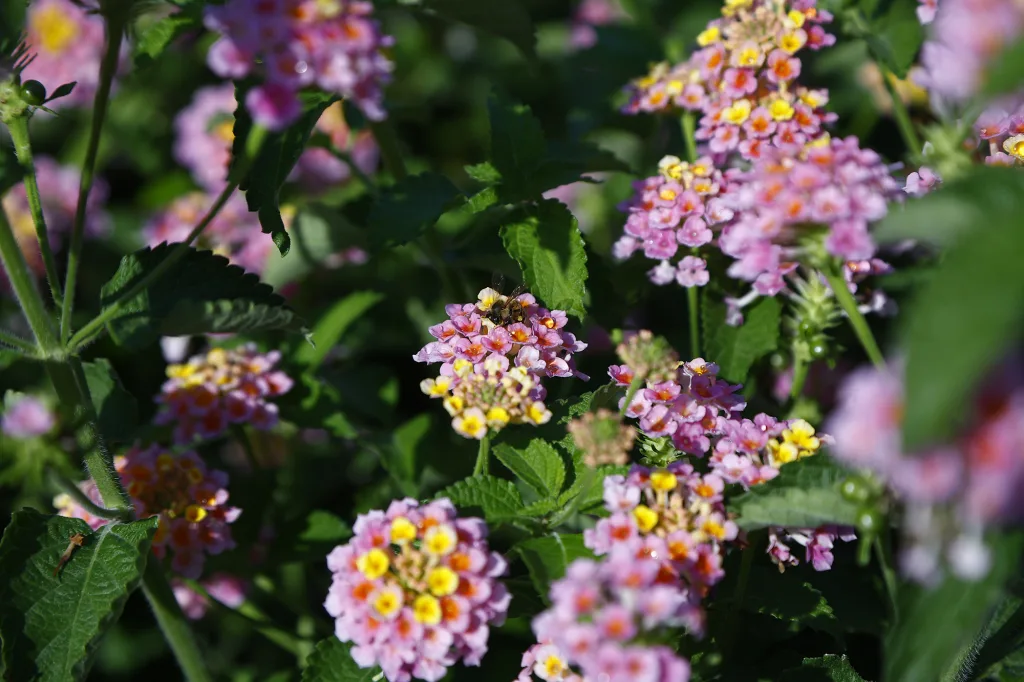
Watering two days per week or less ensures plant health and vitality. It also protects our lake levels and reduces your water bills. It’s possible to have a beautiful yard and conserve water to ensure we have water today and for generations to come. So, give a drip and pledge to water less, y’all!
CONTACT
ABOUT UPPER TRINITY:
Upper Trinity Regional Water District, headquartered in Lewisville, provides drinking water to 29 cities and communities in Denton and Collin Counties. Established in 1989, Upper Trinity treats water from various sources, including Jim Chapman, Lewisville, and Ray Roberts Lakes, to meet the needs of its growing service area.

